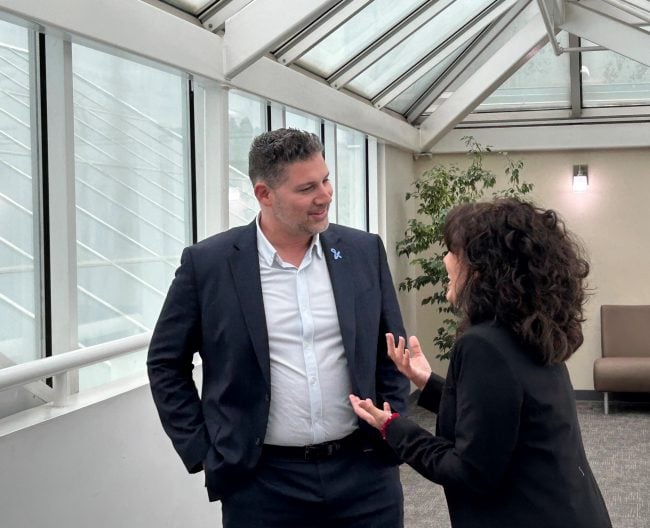WASHINGTON — Supporters of a federal law that would requirefinancial institutions, including credit unions, to blocktransactions involving Internet gambling faced contentiousquestioning as regulators and financial institution representativestestified at a hearing designed to look into the law and itsregulations.
|But credit union industry executives present at the hearing werecheered to hear Representative Barney Frank (D-Mass.), chairman ofthe House Financial Services Committee, reassure them that, in hisview, Congress will be unwilling to go along with the TreasuryDepartment recommendations to overhaul the regulatory scheme thatwould eliminate the credit union charter.
|Frank temporarily chaired the hearing before the Committee'sSubcommittee on Domestic and International Monetary Policy, Tradeand Technology, because Rep-resentative Louis Gutierrez (D-Ill.)was unavailable. As chair, Frank welcomed Harriet May, CEO of GECUin El
|Paso and secretary of CUNA's board with the reassurance ofcongressional support.
|“Before we begin, please convey to Dan Mica, my good friend andformer colleague, that we would never abolish credit unions,irregardless of what Mr. Paulson might have recommended,” Franksaid.
|Even though the hearing had been called to discuss theimplications of regulations being drafted to implement the UnlawfulInternet Gambling Enforcement Act, it quickly became clear that onefocus of the hearing would be the act itself versus a bill authoredby Frank that would effectively repeal the new law in favor of anapproach that would legalize many forms of Internet gambling.
|Stuck in the middle of the waves of conflicting and sometimesemotional opinion were the two witnesses from the governmentagencies tasked with drawing up regulations to implement theact.
|Louise Roseman, director, Division of Reserve Bank Operationsand Payment Systems with the Federal Reserve, and Valerie Abend,Treasury deputy assistant secretary for Critical InfrastructureProtection and Compliance Policy, were mostly restricted in theircomments to pointing out that their agencies had received manycomments about the proposed regulations and were hard at workdeveloping final rules.
|“Nothing has been finalized yet,” said Roseman and Abendagreed.
|But that did little to quiet the discussion. RepresentativeSpencer Bachus (R-Ala.), the ranking Republican on the HouseFinancial Services Committee and one of the authors of the law,spoke in the defense of the law, noting that the attorneys' generalfrom 45 states wrote to support the legislation and in oppositionto the Frank measure aiming to repeal it.
|Bachus pointed out that since the act has passed, Internetgambling has fallen off among college age youth and that the FBIand Department of Justice has testified that Internet gambling hasbeen a vehicle to launder money and finance terrorism.
|Frank spoke against both the current law and the proposedregulations, noting that he disapproved of the attempt to “regulatethe leisure activities of adult Americans.” He noted that evenbackers of the law should want to clear up the problems with theimpending regulations implementing the act.
|This seemed to be a theme running through the hearing as somelegislators expressed reservations about how the authors of thelegislation envisioned enforcement.
|Bachus tried to stem the tide of doubt when questioning thewitnesses.
|One of the chief complaints from credit unions and otherfinancial institutions was that, unlike other similar laws, theproposed regulations did not include or seem to contemplate theprovision of a list of companies or entities involved in Internetgambling for which transactions would be blocked. The lack of sucha list would leave the burden of investigating and identifying suchtransactions to financial institutions.
|Bachus asked Roseman and Abend why there was no list when thegovernment had similar lists for the enforcement of 17 otherfederal statutes that involved financial transactions and seemeddisinclined to accept their response that, unlike laws thatgenerated similar lists, the Internet gambling act sought torestrict an activity rather than a certain entity.
|“A company which may be involved in Internet gambling might havelines of business entirely unrelated to Internet gambling,” Rosemansaid. To which Bachus replied that other sorts of criminalenterprises might likewise have branches of their business that areillegal and other branches that are legal but that did not stopthem from having their transactions blocked.
|But soon he came up against another problem in that the act isunclear on a definition of Internet gambling and different federallaws do not seem to agree on a definition.
|“If it is not clear that law enforcement officials would knowhow to enforce this law, I am not sure how we can expect financialinstitutions, which are already burdened, to do it,” Franksaid.
|Almost lost in the clashing opinions and questions was any inputfrom credit unions themselves. Harriet May, CUNA secretary to theboard, delivered her prepared statement about the challenges creditunions faced if they tried to follow the proposed regulations andwas not asked any follow up questions. But she did indicate that ifthere had to be a law, credit unions might find Frank's law easierto follow.
|May said that Frank's bill, the Internet Gambling Regulation andEnforcement Act, would require Internet gaming businesses to belicensed and pay user fees to the Financial Crimes EnforcementNetwork. The bill could be the vehicle for the Department ofJustice to take the lead in not only monitoring the entities thatare complying with registration, but also developing a list ofbusinesses or individuals involved in illegal Internet gamblingactivities.
|“Such an approach would promote compliance for institutions byproviding them a much greater level of certainty as to whether atransaction for a particular entity should be prevented. Exemptionsand safe harbor provisions would help provide a regulatoryframework that might actually be able to work.”
|Complete your profile to continue reading and get FREE access to CUTimes.com, part of your ALM digital membership.
Your access to unlimited CUTimes.com content isn’t changing.
Once you are an ALM digital member, you’ll receive:
- Critical CUTimes.com information including comprehensive product and service provider listings via the Marketplace Directory, CU Careers, resources from industry leaders, webcasts, and breaking news, analysis and more with our informative Newsletters.
- Exclusive discounts on ALM and CU Times events.
- Access to other award-winning ALM websites including Law.com and GlobeSt.com.
Already have an account? Sign In
© 2024 ALM Global, LLC, All Rights Reserved. Request academic re-use from www.copyright.com. All other uses, submit a request to [email protected]. For more information visit Asset & Logo Licensing.









